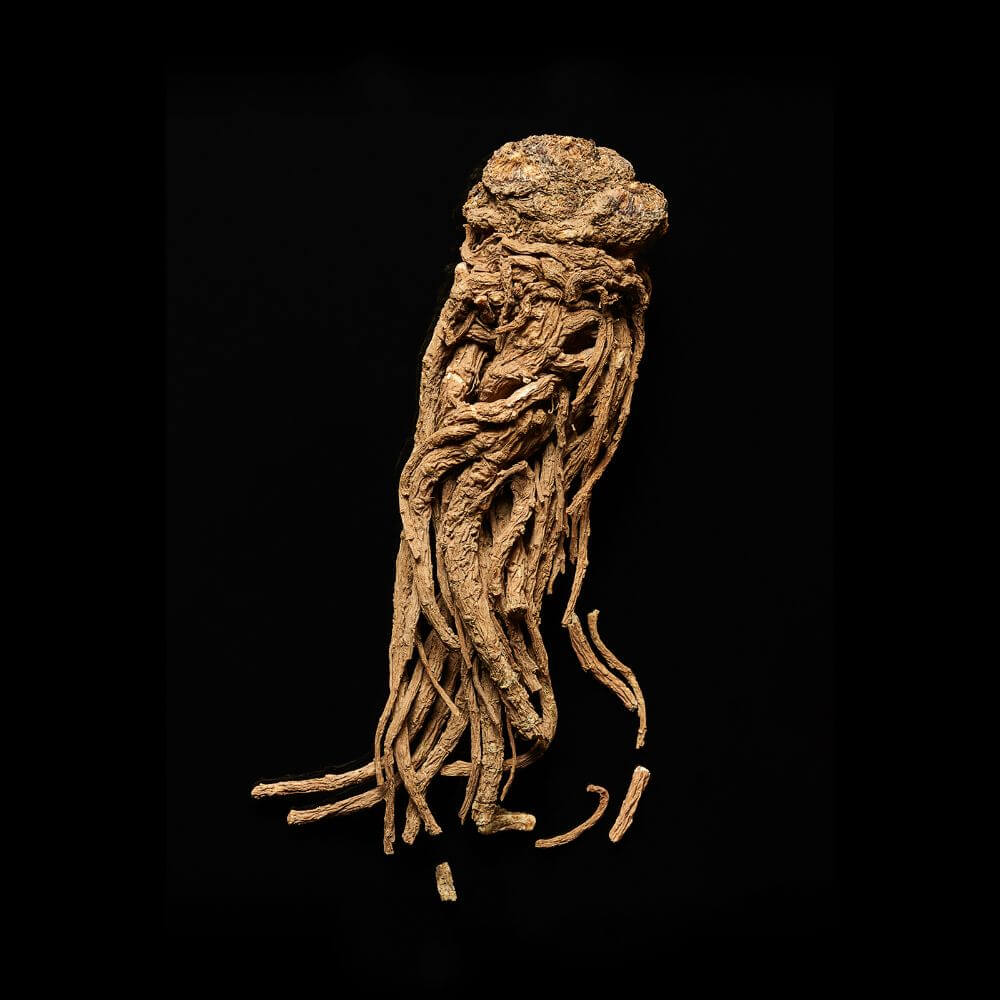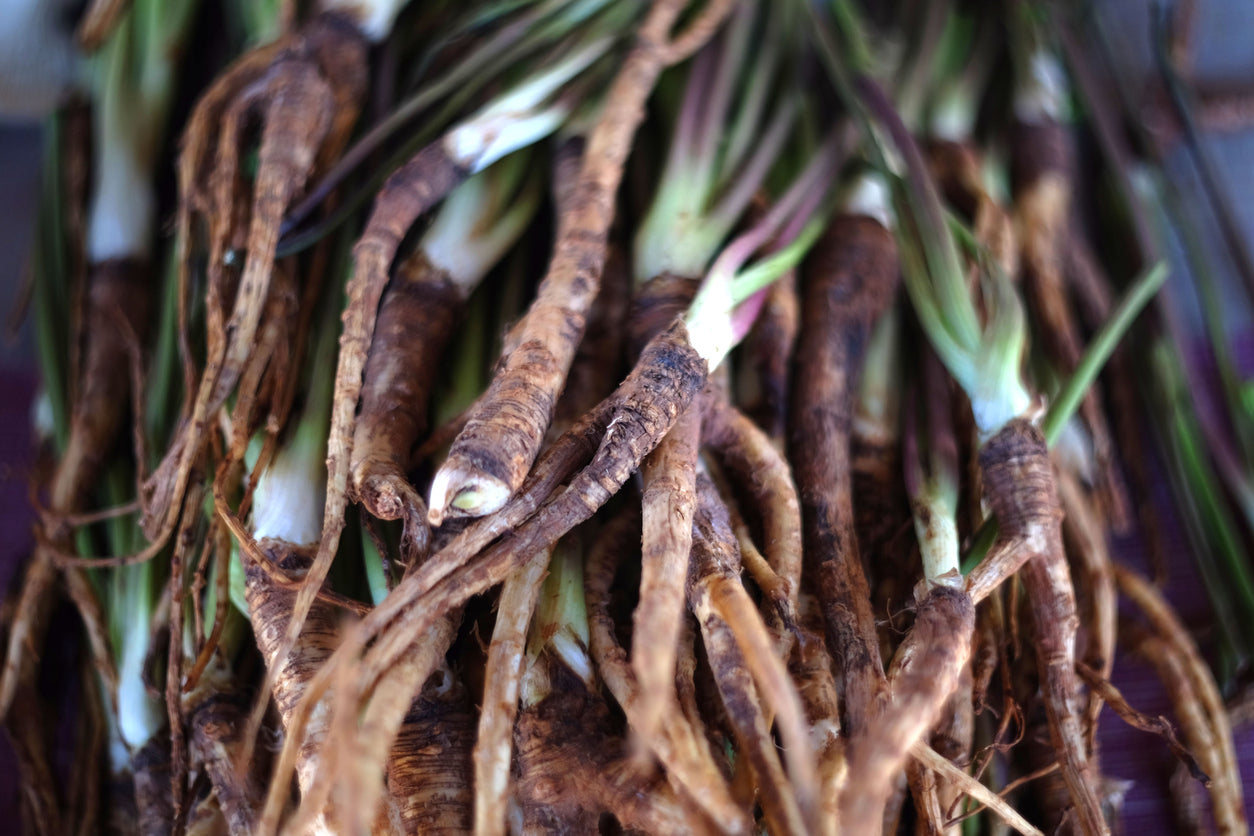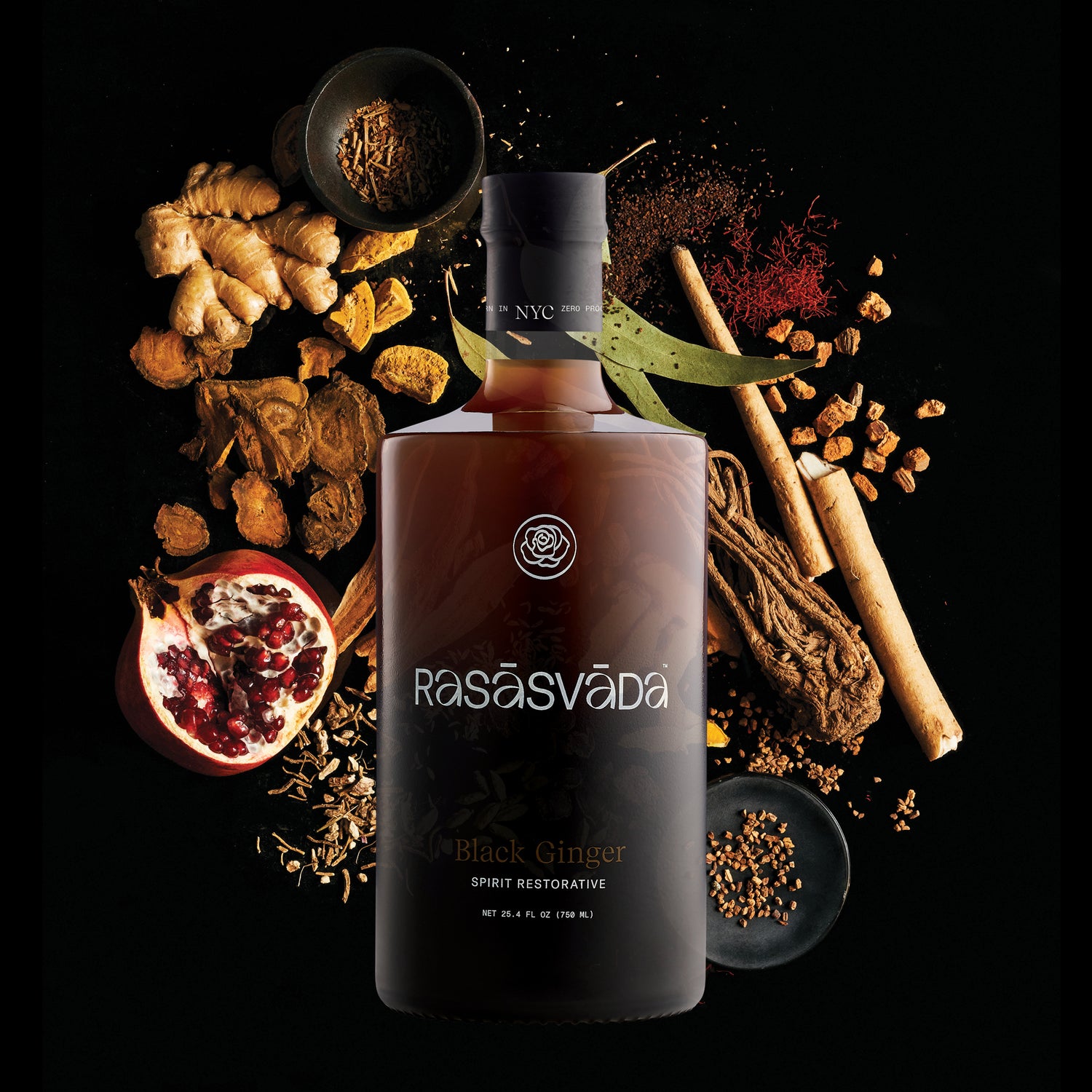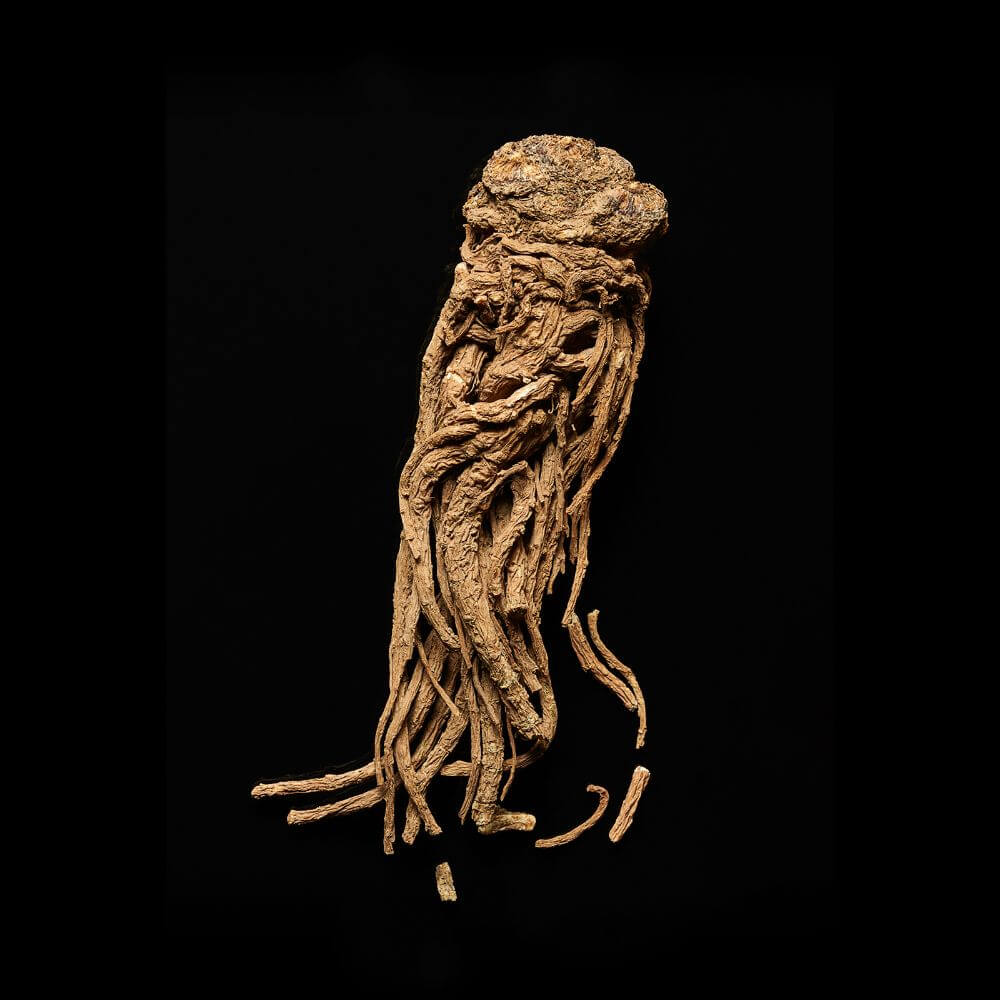Angelica sinensis—better known as dong quai or “female ginseng”—has been used for thousands of years in Traditional Chinese Medicine (TCM). This aromatic root has been used to nurture balance, circulation, and vitality, especially in women’s health (including managing menstrual disorders, menopausal symptoms, and anemia).
Harvested from a tall, fragrant plant, dong quai is typically sliced and dried for teas, tonics, or tinctures. In TCM, it’s considered warming and tonifying, supporting energy and blood flow, and has a sweet, bitter taste. While dong quai belongs to the same botanical family as carrots and parsley, its roots dig even deeper into herbal tradition as a plant of balance and restoration.
Botanical Overview

- Botanical Name: Angelica sinensis
- Family: Apiaceae (carrot or parsley family)
- Common Names: English: Chinese Angelica, Female Ginseng, Angelica. Mandarin: Dong Quai, Tang-kuei, dang gui, tang kuei, tan kue
- Location/Cultivation: It can be found in the mountainous regions of China, including Gansu, Sichuan, and Yunnan provinces.
What is Dong Quai?
Dong quai is an aromatic root traditionally used in TCM, often referred to as female ginseng for its restorative and energizing effects—though unlike ginseng, dong quai is not stimulating, but harmonizing. The herb is frequently combined with others such as peony and licorice to create synergistic formulas that support reproductive health, circulation, and vitality.

History & Traditional Use
First recorded in the Shennong Ben Cao Jing (The Divine Farmer’s Materia Medica), Angelica sinensis has long symbolized balance, especially for women during menstruation, postpartum recovery, and menopause. In ancient apothecaries, it was prized as both a tonic and a restorative, believed to replenish what the body loses through cycles of energy, blood, and stress.
Dong quai was traditionally used to help women recover strength after childbirth, ease menstrual discomfort, and maintain smooth transitions through hormonal changes. Its reputation as a root of renewal still endures today.
The Health Benefits of Angelica Sinensis
From TCM to modern supplement usage, Angelica Sinensis has a myriad of health benefits that are still in early stages of research in the lab. Typically, dong quai is used as a gentle plant-based solution for hormonal shifts, circulation, and antioxidant support.
1. Supports Female Hormonal Balance
In TCM, dong quai is used to regulate the menstrual cycle, nourish blood, and ease PMS or menopausal discomfort.
One study suggests it has mild phytoestrogenic effects. Phytoestrogens are plant-derived compounds (found in herbs like dong quai, red clover, and soy) that can bind to estrogen receptors in the body. They don’t act as strongly as natural estrogen but can help regulate hormonal fluctuations during menopause, PMS, or perimenopause, reducing symptoms such as cramping, hot flashes, and mood fluctuations.
2. Improves Circulation & Blood Health
One of dong quai’s core TCM actions is improving circulation and vitality. Its active compounds, including ferulic acid and ligustilide, may support vascular health including circulation, platelet activity, and blood pressure.
More recent studies are focusing on dong quai’s effect on circulation and stroke, including deep vein thrombosis and hypertension.
3. Stress & Mood Support
In research on rats, angelica sinensis has shown the potential to improve mood and have an antidepressant-like effect, although this is yet to be determined on humans. Because of this, it has been described as adaptogenic (helping the body respond to stress while restoring calm, steady energy); however, it isn’t actually an adaptogen. In TCM, it is considered a “blood tonic.”
4. Anti-Inflammatory & Antioxidant Activity
Scientific studies highlight dong quai’s potent antioxidant and anti-inflammatory properties (determined through research in its ferulic acid, ligustilide, and polysaccharides). Though still in progress, the research is targeting cell protection from oxidative stress and inflammation.
There are additional studies being conducted that explore the link between dong quai’s anti-inflammatory properties and skin health, specifically its effect along with other botanicals on itchy skin or dermatitis.
5. Skin & Hair Health
By supporting the flow of nutrients and oxygen throughout the body, dong quai enhances the appearance of vitality from within, embracing inner nourishment for outer glow.
In a more general sense, health studies have determined that improved blood circulation and antioxidant properties lead to healthier, more vibrant skin and hair. Due to this, dong quai contains compounds that are linked to health and beauty due to their positive effect on circulation and blood flow.
Angelica Sinensis in Rasāsvāda

At Rasāsvāda, Angelica sinensis plays a key role in Black Ginger, our layered, bittersweet tonic designed to support balance and restoration. Blended with reishi mushroom, burdock, dandelion, sarsaparilla, and angelica archangelica, this restorative drink offers both grounding and renewal. Black Ginger is the most bitter and bold of the Rasāsvāda restoratives, making it a perfect cleansing nightcap.
Flavor Profile: Dong quai has layers of flavor including sweet, earthy, and bitter. TCM practitioners note that the aroma is ”sharp and pungent and immediately transports one to a TCM herbal dispensary where it is so frequently being prepared and laid out on the scales.”
Sourced From: Mountains of China
Key Takeaways
Over the years, Angelica sinensis has been studied for its potential to support circulation, emotional well-being, and help improve hormonal imbalances. Research is still limited, but the potential for additional health benefits is optimistic. In Rasāsvāda, we use this timeless botanical to bridge both tradition and modernity, providing depth, warmth, and vitality in every sip.
FAQs
Disclaimer
This content is for educational purposes only and is not intended to diagnose, treat, cure, or prevent any disease. Always consult with a qualified healthcare provider before starting any new herbal regimen, especially if pregnant, nursing, or taking medications.
100% plants. 0% preservatives.
Sources
A molecular docking study of phytochemical estrogen mimics from dietary herbal supplements - PMC
Dang gui | Herbs | Herbal Reality
Efficacy of phytoestrogens for menopausal symptoms: a meta-analysis and systematic review - PMC
Evaluation of antioxidants in Dong quai (Angelica sinensis) and its dietary supplements
How Traditional Chinese Medicine Supports Radiant Skin — Tao of Wellness
Ligustilide attenuates pain behavior induced by acetic acid or formalin - ScienceDirect
Molecular pharmacology of inflammation: Medicinal plants as anti-inflammatory agents - ScienceDirect
Pharmacological effects of Radix Angelica Sinensis (Danggui) on cerebral infarction - PMC
Unlocking the secrets of skin blood flow - PMC
What Is Dong Quai (Angelica Sinensis)? + Can it Help Balance Hormones? | Wellness Hub
